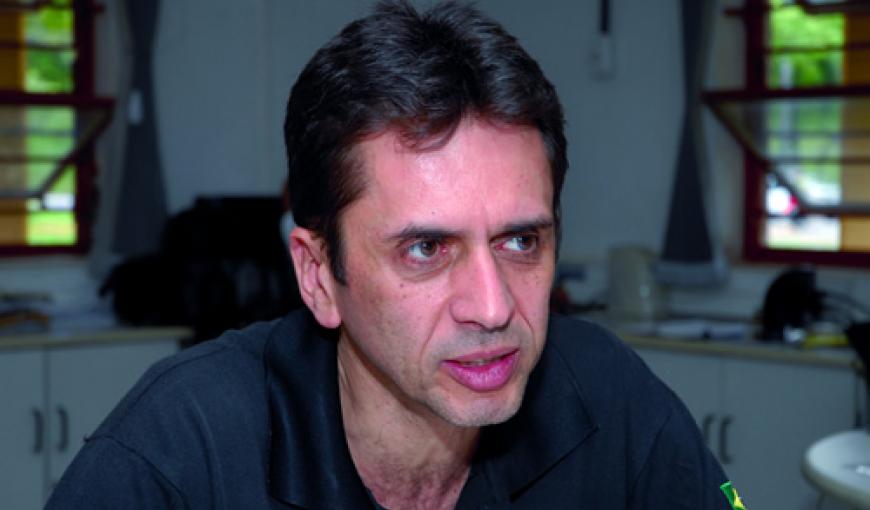University takes part in international project that investigates the use of cloud platforms
A tree that falls in Belo Horizonte in a rainy afternoon has the power to affect various administrative spheres of the city: the traffic manager needs to take measures to relieve traffic, the cleaning company is called to clear the road and the energy utility company must intervene to ensure the reestablishment of the service interrupted due to the incident. All of these disturbances could be dealt in a more effective manner if the data that support the decisions of the managers were integrated, stored and handled in the “cloud”.
This real example was reported to Professor Wagner Meira Júnior, from the Department of Computer Science of the Federal University of Minas Gerais (UFMG), while visiting the -Operations Center of the City of Belo Horizonte (COP-BH). The case illustrates one of the potential benefits of the EUBra-BigSea project, started last January, which involves 12 universities across the world interested in the development of methods, algorithms and technologies for cloud data storing platforms. Meira is the Brazilian coordinator of the initiative, which shall be developed in the next two years, with financing from the Ministry of Science, Technology and Innovation through a notice published by the Brazilian National Research and Educational Network (RNP).
Four pillars support the project: quality of service, large volume of data, analytic intelligence techniques to handle these data and privacy and security of the information. The first front intends to generate process so the cloud access providers may ensure the quality of the service provided to the users. “When someone hires a cloud data storage service, for example, they want the guarantee that they will be able to open their files quickly, anywhere. We will build mechanisms that enable providers to give this guarantee of fast, efficient access”, Meira explains.
The second pillar will focus on large volumes of corporative and non-corporative data stored in the clouds. According to the Professor, this demand is not always foreseeable and thus requires specific strategies. “There is a risk of the server being flooded for unforeseen data. In this type of situation, how can it guarantee the quality of service? We intend to build mechanisms to receive, treat, store and integrate this data mass”, he says.
The third axis is related to the study analytic intelligence techniques for data handling, and the fourth to the privacy and security of information. “It is not enough to store and handle data, algorithmic information segmentation techniques are necessary. In addition, when we deal with private, sensible data, we must ensure that the information shall not be available to unauthorized persons. Even if it is in the cloud, a datum must not be accessed by anyone", Professor Meira states.
Smart city
The four sides of the study shall be worked in a model-scenario of a smart city – that which, in the computing perspective, uses information and communication technologies for the planning and improvement of the quality of life of its inhabitants. “Our concept proof is the smart city. What would a smart cloud city be like, with privacy, security, quality of service safeguards and dealing with large volumes of data?”, the researcher asks. “In a place with such profile, we could count with mechanisms that would anticipate problems, with all data being stored and handled in cloud”.
The information and data used in the EUBra-BigSea project will traffic in the Brazilian National Research and Educational Network (RNP), which connects the Brazilian federal teaching institutions to the internet. The forecast is that, by the end of the project, the group has developed prototypes, concept proofs and operating reviews of cloud network systems.
The EUBra-BigSea deals with a very relevant computing concept. “Cloud computing is increasingly present in the lives of people. It is that which you enjoy, but do not see. It is somewhere, but it is not represented in a physical manner”, Wagner Meira says.
The Professor explains that the main advantages of the cloud computing – when compared with traditional computing - are strength and elasticity. The main feature alludes to the fact that cloud systems are more stable, because they are better distributed spatially. “When you use an e-mail account, for example, you do not know where it is, and, even so, it is possible to access it from any place”, Meira says. Elasticity is a system’s capacity to expand itself to store a larger volume of data and process tasks that are more intensive from a computational point of view.
Wagner Meira adds that cloud computing favors the time-sharing concept – one that is widely used in computing –, because it enables the work with a set of machines that is not located at the same place. “A machine that uses cloud computing performs, at the same time, various processes from different users. It is not the infinite, but it is the closest we can get to it”, the researcher concludes.
Photo: Wagner Meira / Publicity.
Source: UFMG
